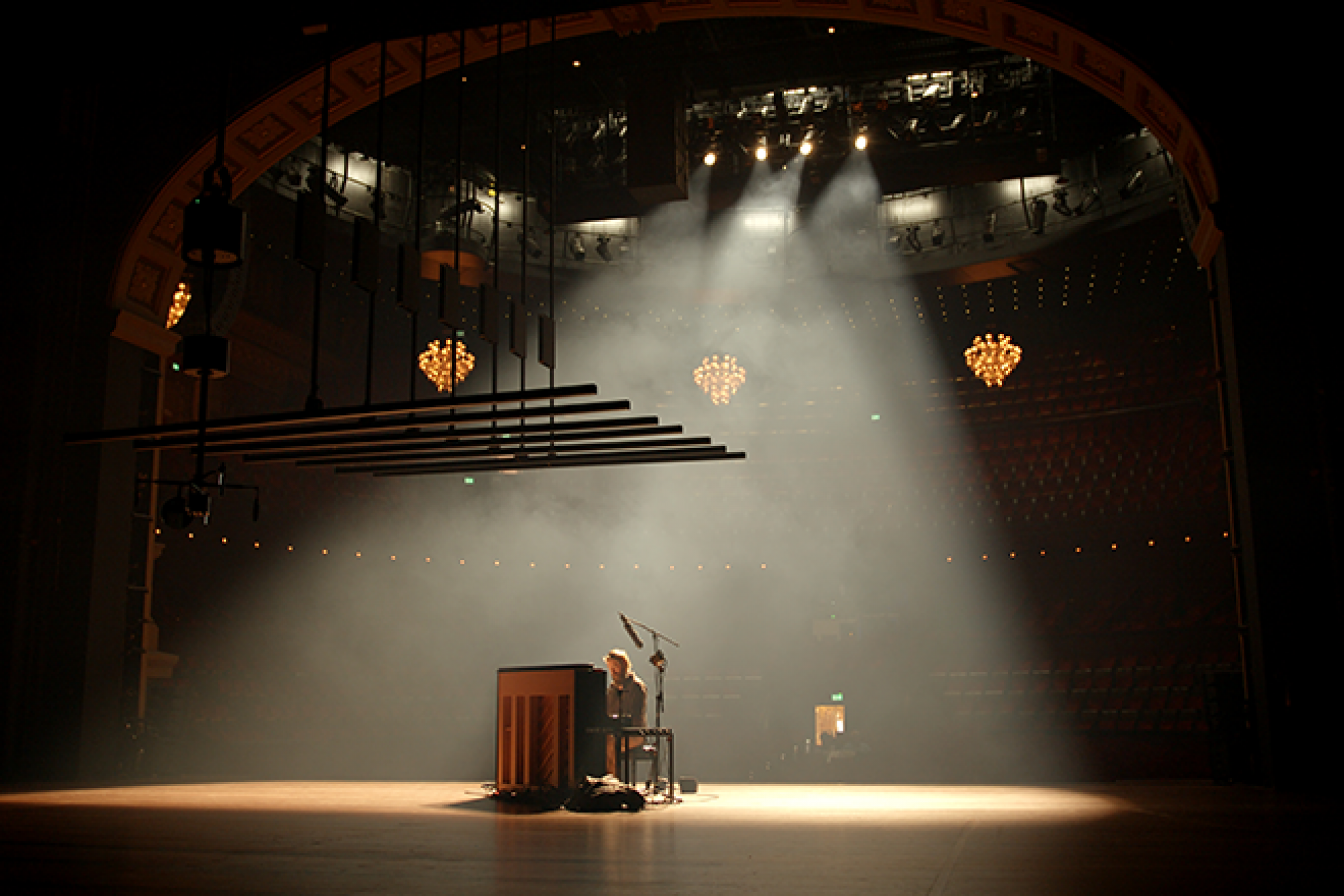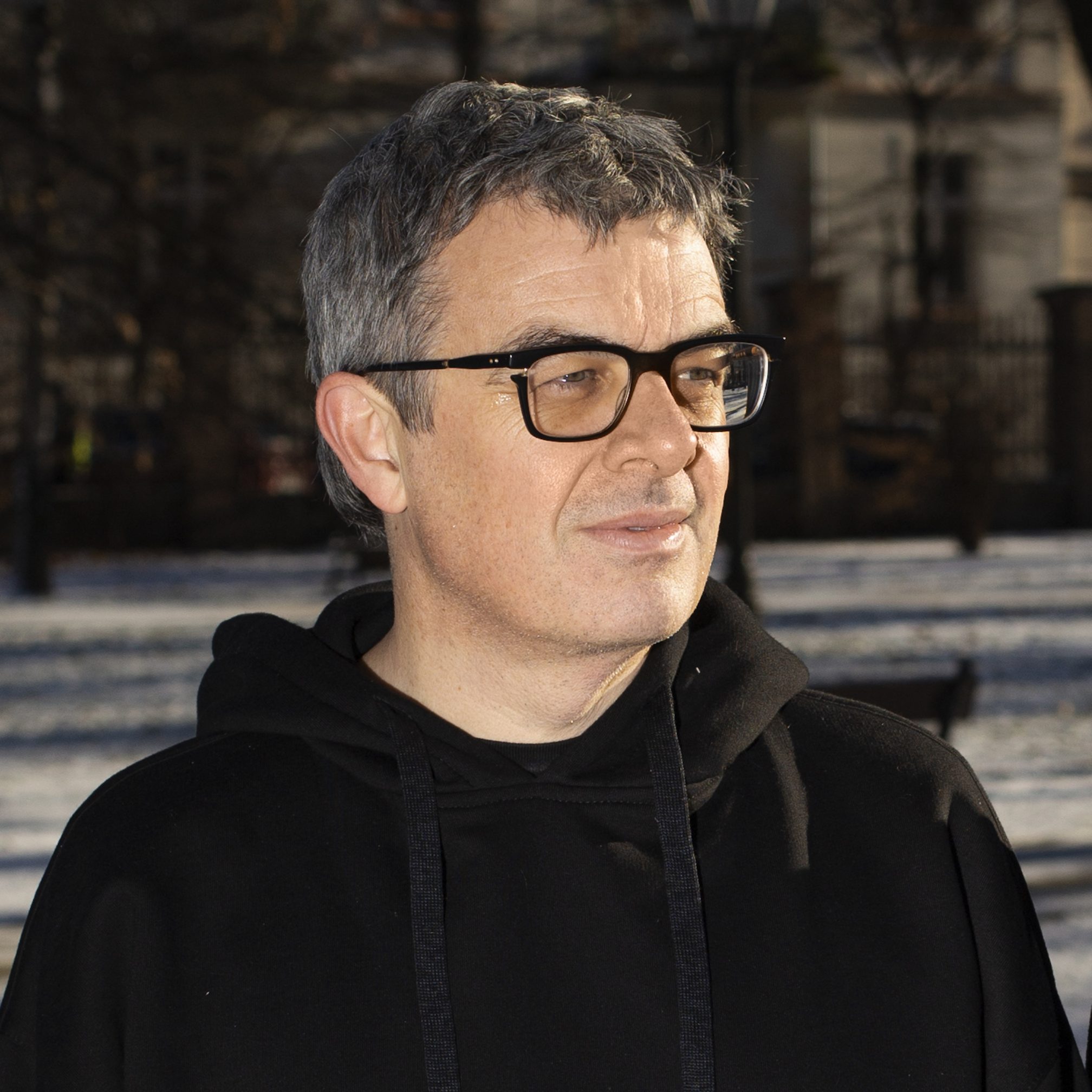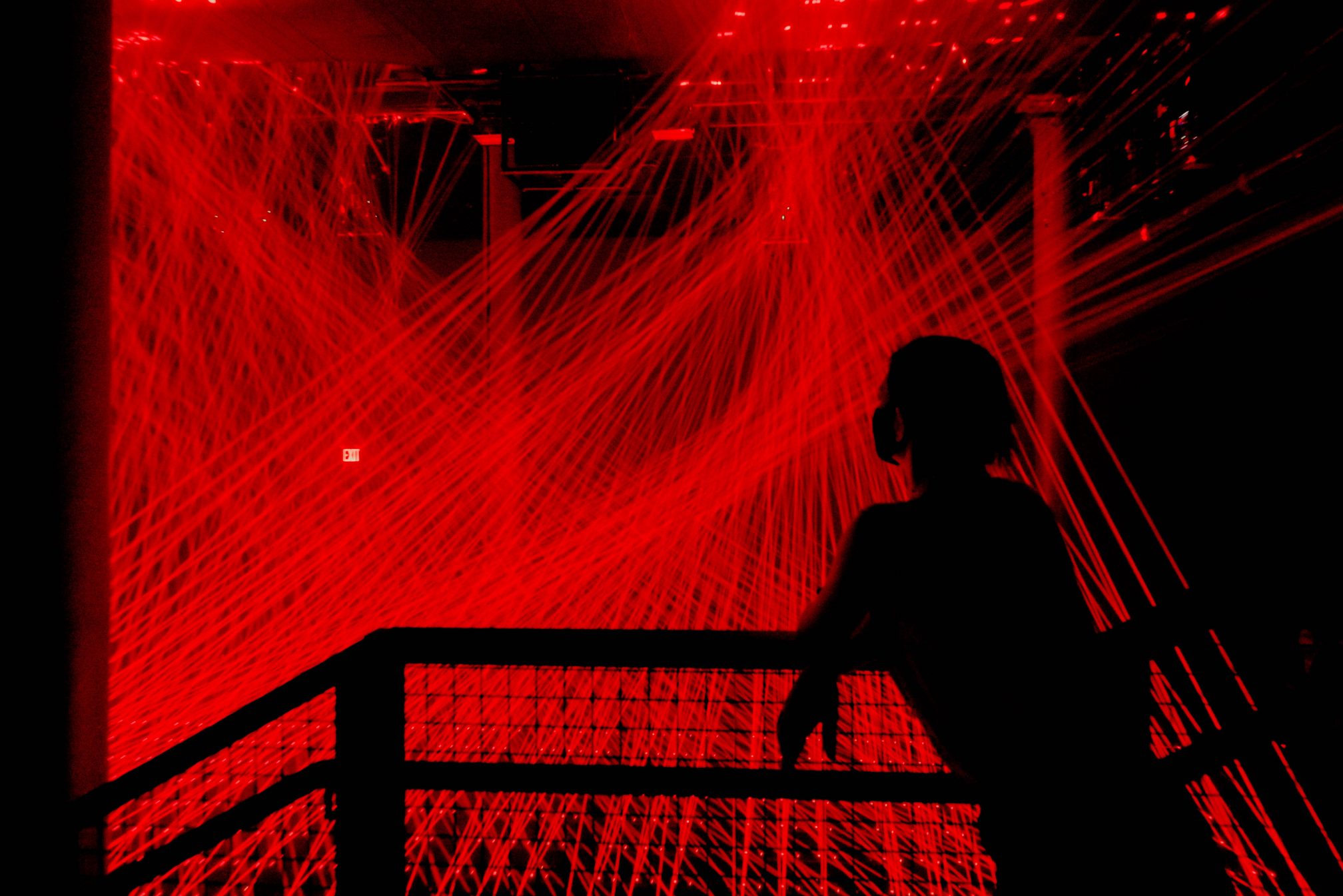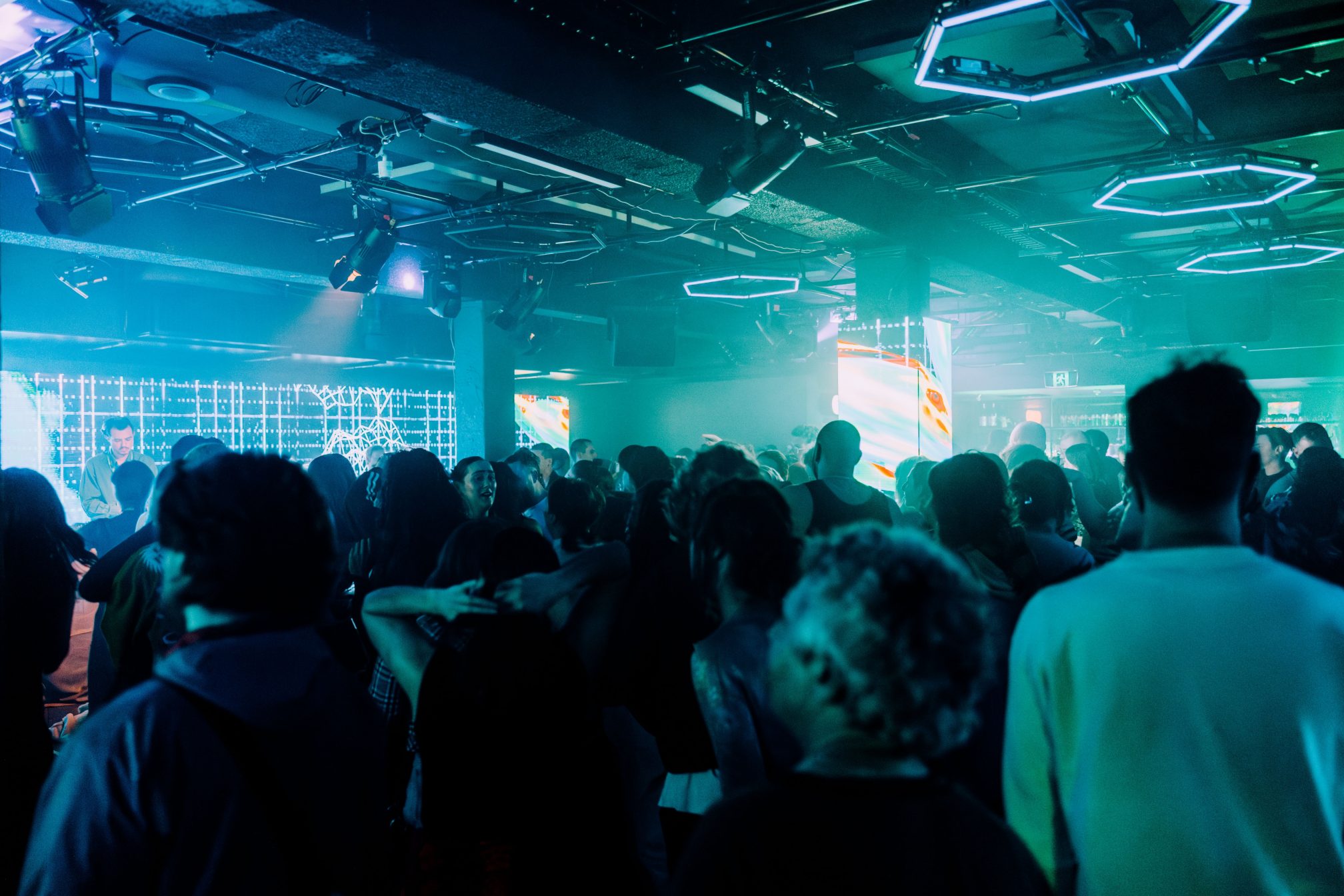 FEATURES
FEATURES
Wagga to The World: How Unsound Festival has never stopped pushing boundaries
Ahead of the festival's appearance at Illuminate Adelaide, founder Mat Schulz explains its often entertaining history in his own words.
Hailed as one of the world’s boldest and most daring experimental music events, Unsound has been pushing the boundaries of music, sound and art for over 20 years.
Ahead of Unsound’s appearance within the framework of Illuminate Adelaide this weekend, 19-20 July, Mixmag ANZ spoke with founder and artistic director Mat Schulz.
The following are Schulz's own words, chosen and arranged by Mixmag ANZ from an hour long conversation. It covers a history of Unsound in his own words, its intentions and reaction to the perspective of its audience in over two decades of running.

Unsound started at a time when there were no festivals like that in Poland, really, and very few in across Europe or anywhere else. It's not like today where there are festivals everywhere, to the point that the word festival kind of almost loses meaning because it's used so casually, just like the word curator is used pretty casually these days. You know, you can be a curator of a wine shop.
[When we started] there weren’t so many music festivals, they just didn’t exist. So, you would use the word festival, and write it very heavily as a music festival because there weren’t any, and people would come for that reason.
Nowadays people put on a day event with several artists and call it a festival. That becomes problematic, I think, when there’s this kind of festivalisation and festivals are overfunded, and then independent culture in a city is kind of forgotten.
Different independent enterprises that aren’t festivals are an essential part of a city’s fabric as well. It’s problematic when they all disappear as a result of gentrification, or development of cities, and then money is only put into festivals that are advertisements for that city.
The question is how to walk these different lines, and connect these different things.
For Unsound, when we started the time was very different and so was the intention. We didn’t aim to create a festival that would be enormous, it was more about creating a place within Krakow to allow Polish artists to perform experimental music, and to bring people from abroad because there weren’t so many artists coming to Poland then either.
Years after the end of communism, it was a country and a city in this period of intense transformation, and Unsound grew out of that.
The first six or seven years it took place in small, kind of medieval cellars in the old town. The first year we actually got thrown out of the club because they didn’t like the music. They literally stopped us halfway through and threw us out.
[When my partner Gosia came on board], she asked me and Culba, the other guy with whom I was organising the festival, “oh why don’t you make Unsound bigger?” Culba replied, “because then someone will have to take care of it.”

Its first iteration was actually in Wagga Wagga. The first events that were called Unsound were in Wagga, which were organised by friends of mine and my brothers, who were involved in Wagga Wagga. They did a couple of editions in the year 2000 to 2002, and there was this loose connection between Unsound in Wagga and Unsound in Krakow.
So even in that very first iteration of Unsound in Krakow, it was already in another place.
While Unsound had its main home here in Krakow, we were always putting on events in other places. Never as a franchise, we were always involved in them, always working with local organisers and presenters, never just kind of imposing our vision, but somehow collaborating.
In 2000, we commissioned this work Solaris with Sinfonietta Krakowie, with Ben Frost and Bjarnason, and visuals by Brian Eno. It’s like an alternative score to Tarkovsky’s Solaris, the film and the book, and I wanted to bring it to Australia. So, we wrote to different artists festivals in Australia, which was set to be quite a big undertaking, and I assumed only an arts festival would be able to do it.
No one came back except for David Sefton, who was the Artistic Director at Adelaide Festival.
David’s very music focused and knows quite a lot about music in some ways, in a similar place. He wrote back and said, “oh I’d love to bring it here, and also, I know about Unsound.” David had a scrapbook and he would take out cuttings or whatever from newspapers, and he had read about Unsound in New York when he was in LA.
He said, “why don’t you put on a little Unsound within Adelaide Festival?”
So that’s how it started basically. David was a part of Adelaide Festival for five years, I think, then it was an independent event organised by David and Lee, who organises Illuminate Festival with Rachael, and now it’s part of Illuminate Festival.
One thing led to another when it comes to Adelaide.

But of course, it’s not the place where you might assume a festival of that kind would happen in Australia.
But that’s also true of Krakow. When we started Unsound Krakow, it’s not as if that was an obvious place to put a festival of this kind. It’s still not in some ways, in terms of what actually happens here the rest of the year. So in a way, they’re both cities that just aren’t these ‘obvious’ capitals.
I like that though. I like the idea that it’s a place you wouldn’t expect it. It’s great for the locals too, who get to experience something like that, that doesn’t always happen.
It’s quite a wide spectrum of music. We go from very demanding experimental music where you need to be really focused. If they’re playing outside of the festival context, they might attract a very small audience. But, if you put them within the framework of a festival alongside other artists who are more accessible, then people go to these shows and they experience this music.
That’s part of what Unsound is about, creating a space where the audience can access this more ‘demanding’ music.
I’m a big believer in contrast, in terms of a music program. I really don’t find it interesting to put on a whole night of club music that sounds the same. I’m much more interested in colliding genres with experimental shows at the start. When you create a program that includes contrasts, you can listen to a lot more as an audience member. You can experience a lot more because your ears and your mind are refreshed continually.
I find the club program harder than the more experimental program [to curate].
I feel like there’s these different points in the middle that DJs are kind of all arriving at, not one point but there’s a few different ones and it gets easier to DJ thanks to technology. There’s these certain, let’s say, tricks or ways of DJing that are popular at the moment that several years ago, were surprising.
I feel like club music at the moment, it’s in this space, it’s some kind of interim moment, which I’m sure will lead to something else.
I don’t think Unsound [responding to the world’s media usage] is so much combatting as we’re just responding to it. It’s nothing worth combatting.
2014 was the edition where we banned photography. It was like, not just the audience members, we didn’t take any photos. The theme was ‘interference’, and so we didn’t take any photos and media weren’t allowed to take any photos.
We got people to make these, like, court drawings.
You go through our page back to 2014, whenever it is, and there’s just a bunch of drawings that we commissioned someone to do. Then, other audience members also just started drawing the artists and sending them to us.
Actually the edition following, I think, was the ‘Surprise’ edition, where we didn’t announce half the lineup.
We were subverting expectations and playing with the idea of why people come, why you’re attracted to come to a festival and how your expectations of who you’re about to see, in terms of an artist or a band, affect how you perceive them.
Some of the artists were, ah, very well known, that we didn’t announce. For example, Richie Hawtin’s team had asked us about him playing for a few years and it was the ‘Surprise’ edition where it made sense.
So we said “Ah okay yeah, Richie can play this year but only if we don’t announce him and he plays at 4AM in the smaller room.”
In 2024 it seems even more wild as an idea I suppose, especially in club music where social media and Instagram and TikTok have become so important in terms of building your profile, your name as an artist or a DJ and so on.
So I don’t feel it’s a thing to combat as such. Just like AI is not really a thing to combat, it’s more a thing to respond to.
Actually, last year we had an artificially intelligent Artistic Director helping us with the program for the ‘DaDa’ theme. In the end actually, it was fired.
If you go onto the Unsound website, we have news stories, and it took over the website and started spamming people with newsletters they didn’t want, denigrating the human curators, and complaining that their superior ideas were not accepted.
But that’s why you have to mix things up I guess. With the AI-AD, the points where we actually took advice was not so much in specific artists, because their choice of artists was very predictable and obvious, but kind of pushing it to come up with ideas that were really weird and unexpected.
For example, we had a tap dancer working with Annalia, this modular synth musician, and it was really good.
We also had a really unexpected act, which was a really bad cheesy magician.
I was sinking into my seat, thinking “this is the worst or the best thing ever.” Some people loved it, some hated it, some were confused. They said, “was that a performance artist?” I was like, “no, that’s a cheesy magician”.
I just don’t try and combet these things with AU. We’re like, “okay, let’s use this somehow, and make fun of that idea, or this is quite entertaining.”

I still get very excited whenever I hear something that really grabs me. I’ll immediately know that this has to be at the festival, this artist or that scene or that label, but it always gives me a jolt of excitement.
So does working with artists and developing new work with them. This is especially when it goes well, and you’re conscious of the fact that you’re helping, that you have a platform and a space where you can help others create something that they wouldn’t otherwise create and be creatively involved in that to a degree.
This is always interesting for me. I still love developing different themes and visual identities and ideas around Unsound. This is important in terms of techniques, not just in terms of what it is and how we can communicate with Unsound each year, but to us as the programmers.
You need to know how to reset your way of thinking each year.
-
Mat Schulz is the founder and artist director of Unsound.
Unsound Adelaide tickets are available via the Illuminate Adelaide website.
Jack Colquhoun is the Managing Editor of Mixmag ANZ, find him on Instagram.


